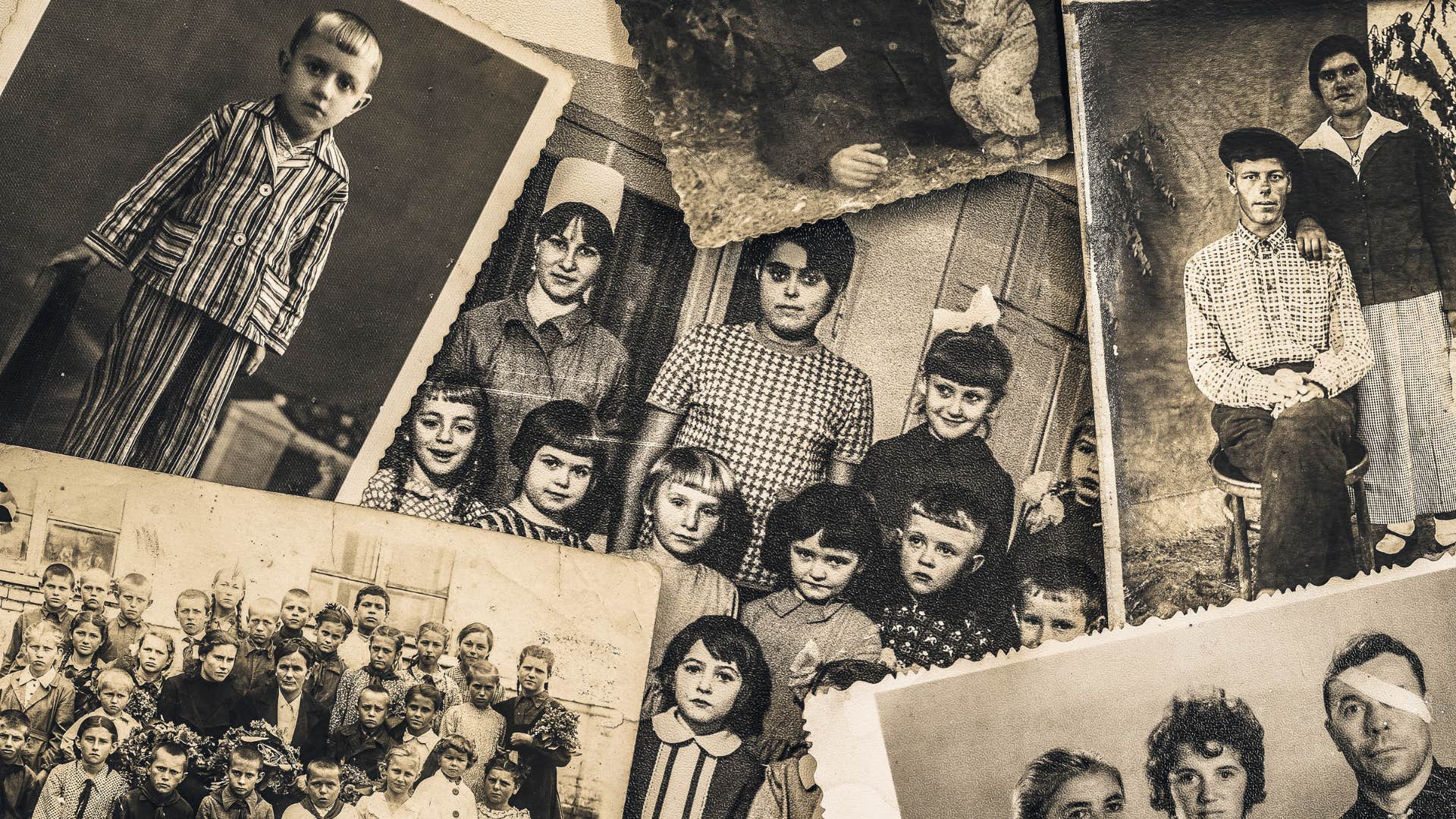Your Husband's Parents Did A Good Job Raising Him If He Has These 5 Things In His Home As An Adult
A quick scan of his home will tell you so much about the kind of man he is.
 CWLawrence | Canva
CWLawrence | Canva Pots, pans, dishware, loads of utensils. Therapist Dr. Gloria Brame, PhD, was impressed when she visited her husband's home and discovered he had a fully stocked kitchen. That told her someone taught him the value of learning how to cook — and turn out a lot of different types of meals, too.
You can tell a lot about a man by the home they build for themselves — not just how it looks, but what it holds. If a man keeps these five things in his home as an adult, it’s a quiet sign that his parents raised him with care, intention, and values that stuck.
Your husband's parents did a good raising him if he has these things in his home as an adult:
1. A stocked kitchen
 Adriaticfoto via Shutterstock
Adriaticfoto via Shutterstock
A well-maintained and stocked kitchen shows a sense of pride in the home. The home is a sign of the heart and cooking is the way to show love to oneself and others. Cooking is a nurturing activity, and when a man's home shows the signs of a well-loved kitchen, it can also indicate a better balance of feminine and masculine within a man.
A 2014 study examined how a group of men drew on traditionally masculine and traditionally feminine approaches to food. Most men drew on traditional masculinity while also applying femininity around food, Men with the heaviest responsibilities for feeding others tended to take on more femininity around food.
The study helped show how social roles and responsibilities intersect with our identities and shape our cooking approaches. A man who was taught by his parents to cook and take pride in the home is a man in touch with his emotional balance.
2. Bookshelves with a variety of reads
 Dean Drobot via Shutterstock
Dean Drobot via Shutterstock
Bookshelves with a variety of reads display curiosity, education, and love for learning. Parents who are readers generally have children who are readers, yet a harmful stereotype exists that men, in particular working-class men, don't read. This can misidentify reading as something of class and privilege to further social divides.
2018 research challenging the negative stereotype of men not reading found that "young men engage in reading in different ways, from listening to audiobooks and reading aloud to watching films, [and argued] that it is possible to re-envision working-class men as readers who, among other things, use reading to construct softer masculinities, thus challenging the dominant narrative of working-class masculinity and working-class men’s relationship to reading and texts."
3. Plants or pets
 Anna Nahabed via Shutterstock
Anna Nahabed via Shutterstock
Plants and pets demonstrate responsibility and care for pets and living things. When a man has plants and pets in the home, it is a sign he was taught to nurture life with a sense of compassion.
Nurturing life also has a benefit for these guys, "plants and pets each fulfill unique emotional, psychological, and social needs," explained a 2024 study whose "findings suggested both indoor plants and pets contribute to well-being in distinct ways, influencing stress levels and quality of life differently." When he knows taking care of others makes him feel and live better, it is a great sign.
4. Photos in picture frames
 Bert Flint via Shutterstock
Bert Flint via Shutterstock
Keeping family photos is both a connection to the past and a projection into the future.
2016 research on the construction of family and memory explored "how families prefer to be rooted in their past, [while] projecting their family image into the future to reinforce their family relationships with the aid of their family photographs." A man who keeps his family memories alive is going to be a guy who will help you create good memories as well.
5. A fully functioning laundry system
 PeopleImages.com - Yuri A via Shutterstock
PeopleImages.com - Yuri A via Shutterstock
Marriage counselor Larry Michel says, that if he does his laundry regularly and doesn’t rely on someone else to take care of his clothes, it shows that his parents instilled independence, self-care, and the belief that chores are everyone’s responsibility in a family.
Relationship coach Carolyn Sharp adds that the management of chores and housekeeping can easily become a source of conflict and discomfort in a committed relationship — who does which tasks, who pays for what, and how this is negotiated become the central focus in many long-term and cohabitating couples. It also drives them apart. This tension tends to multiply when a couple has kids.
When you discover household things that need doing are simply ways to take care of one another, you'll be able to prioritize and maintain your connection as a couple.
Gloria Brame sees all these signs in a man's home as a huge positive when a parent, or both parents, have taught kids practical skills. Those skills prepare the children for adulthood and help them become self-reliant.
Passing down traditional skills — from cooking to making repairs and good grooming — is a legacy gift to a son. It says the parents want to see him thrive in the world.
Will Curtis is a creator, editor, and activist who has spent the last decade working remotely.

